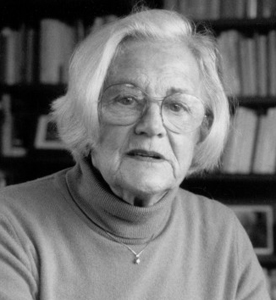Related Research Articles

Maria Anna Thekla Mozart, called Marianne, known as Bäsle, was the cousin and friend of Wolfgang Amadeus Mozart.

Elisabeth is a Viennese musical commissioned by the Vereinigte Bühnen Wien and originally produced in German, with a book and lyrics by Michael Kunze and music by Sylvester Levay. It portrays the life and death of Empress Elisabeth of Austria, also known as "Sisi", the wife of Emperor Franz Joseph I, from her engagement and marriage in 1854 to her murder in 1898 at the hands of the Italian anarchist Luigi Lucheni; it focuses on her growing obsession with death, as her marriage and the empire crumble around her just before the turn of the 20th century.
Die Kommissarin is a German police TV series which aired on Das Erste. Its 66 episodes ran from 1994 till 2006.

Oury Jalloh was an asylum seeker who died in a fire in a police cell in Dessau, Germany. The hands and feet of Jalloh, who was alone in the cell, were tied to a mattress. A fire alarm went off, but was initially turned off without further action by an officer. The case caused national and international outrage at the official narrative of suicide.

Thomas Brasch was a German author, poet and film director.

Marwa Ali El-Sherbini, was an Egyptian woman and German resident who was killed in 2009 during an appeal hearing at a court of law in Dresden, Germany, when she was three months pregnant. She was stabbed by Alex Wiens, an ethnic German immigrant from Russia against whom she had testified in a criminal case for verbal abuse. El-Sherbini's husband, who was present at the hearing, tried to intervene. He too was repeatedly stabbed by Wiens and was then mistakenly shot and wounded by a police officer who was called to the court room. Wiens was arrested at the crime scene and subsequently tried for murder and attempted murder. He was found guilty of both charges; it was also found that Wiens's actions constituted a heinous crime, because they were committed in front of a child, against two people, in a court of law, and fulfilled the murder criterion of treacherousness, such as hatred against foreigners. Wiens was sentenced to life imprisonment.
On 1 May 1945, hundreds of people killed themselves in the town of Demmin, in the Province of Pomerania, Germany. Although death toll estimates vary, it is acknowledged to be the largest mass suicide ever recorded in Germany. The suicide was part of a mass suicide wave amongst the population of Nazi Germany.

Alfred Grosser was a German-born French writer, sociologist and political scientist. Although his Jewish family had to move from Frankfurt to France in 1933, he focused on Franco-German cooperation after World War II, was instrumental in the Élysée Treaty in 1963, and writing books towards better understanding between the Germans and the French. He was professor at the Institut d'études politiques de Paris from 1955 to 1995, and contributed to newspapers and broadcasts including La Croix and Ouest-France. He was critical of Israeli politics which caused controversies. His work was honoured with notable awards.
Petra is a sculpture made in 2010 by the German artist Marcel Walldorf. It is a lifelike representation of a policewoman in riot control gear squatting down and urinating. Although controversial for its alleged misogyny, it obtained an award from the Leinemann-Stiftung für Bildung und Kunst in 2011.
Anja Niedringhaus was a German photojournalist who worked for the Associated Press (AP). She was the only woman on a team of 11 AP photographers that won the 2005 Pulitzer Prize for Breaking News Photography for coverage of the Iraq War. That same year she was awarded the International Women's Media Foundation's Courage in Journalism prize.
Der letzte Zeuge is a German crime television series set in Berlin. Created by Gregor Edelmann, it aired on ZDF from 1998 to 2007 and was mostly directed by Bernhard Stephan. It stars Ulrich Mühe as medical examiner Dr Robert Kolmaar, along with Gesine Cukrowski as his colleague Dr Judith Sommer and Jörg Gudzuhn as police officer Johannes "Joe" Hoffer.

Rolf Oskar Ewald Günter Herricht was an East German comedian.

Dagmar Enkelmann is a German politician of Die Linke party.

Silvia Bovenschen was a German feminist literary critic, author and essayist.

Maria Frisé was a German journalist and author. Her journalistic work consisted primarily of features and reviews, covering the arts and fringe political issues. She was a member of the staff of the Frankfurter Allgemeine Zeitung (FAZ) from 1968 to 1991, working for the paper until her death. She was also the author of short stories, essays, poetry and autobiographical works about her childhood and family in Silesia.
N'deye Mareame Sarr was a German citizen of Senegalese background who was shot dead by a police officer in the town of Aschaffenburg in 2001. Her killing was announced by the police as an act of self-defence, whereas black German organizations saw it as murder.

In Rhineland-Palatinate, Germany, two police officers were fatally shot during a traffic stop on 31 January 2022. The Public prosecutor's office believes that the two arrested suspects were attempting to cover up their poaching.
Ursula Schleicher is a German Christian Social Union in Bavaria politician and harpist who served two terms in the Bundestag from 1972 to 1980 and five terms in the European Parliament between 1979 and 2004. She served as state chair of the Paneuropean Union in Bavaria between 1988 and 1994 before becoming its deputy federal chair in 1995 and was a Vice-President of the European Parliament from 1994 to 1999. Schleicher was appointed Commander of the Order of Merit of the Italian Republic, the Bavarian Order of Merit and the Grand Cross of Merit of the Order of Merit of the Federal Republic of Germany in 2001.

Ulla Berkéwicz is a German actress, author and publisher. The name "Berkéwicz", which she adopted in 1968 as a stage name, and by which she has since become generally known, is derived from the family name used by her Jewish grandmother, "Berkowitz".
References
- 1 2 Bruce-Jones, Eddie (2015). "German policing at the intersection: race, gender, migrant status and mental health" (PDF). Race & Class. 56 (3): 36–49. doi:10.1177/0306396814556223. S2CID 46972161.
- 1 2 3 4 5 6 7 8 9 Jüttner, Julia (22 March 2012). ""Bevor ich etwas sagen konnte, hat sie geschossen" ["Before I could say anything, she shot"]". Der Spiegel (in German). Retrieved 4 January 2022.
"Lass das Messer fallen, oder ich schieße!" [...] "Ich muss sagen, dass sie in diesem Moment einen total irren Blick hatte, voller Aggression, Hass und Wut, ein für mich beängstigender Ausdruck", erinnert sich die Polizistin in einer Befragung.
- 1 2 3 4 5 Garms, Hinrich; Röller, Helga (2012). ""Eine renitente weibliche Person": der Tod der Christy Schwundeck [ "A recalcitrant female person": The death of Christy Schwundeck]". Widersprüche: Zeitschrift für sozialistische Politik im Bildungs-, Gesundheits- und Sozialbereich (in German). 32 (125): 111–115. ISSN 0721-8834.
- ↑ Braun, Markus Omar. "Christy Schwundeck - 19. Mai 2011". Neue Rheinische Zeitung. Retrieved 4 January 2022.
- ↑ Binswanger, Christa; Zimmermann, Andrea (2021). Transitioning to Gender Equality. MDPI. p. 32. ISBN 978-3-03897-866-4.
- ↑ Otto, Stefan (19 May 2012). "Warum musste Christy Schwundeck sterben? [Why did Christy Schwundeck have to die?]". Neues Deutschland (in German). Retrieved 4 January 2022.
- ↑ Izoya, Isaac (28 May 2011). "German Policewoman - Shot And Killed A (Benin) Nigerian Woman". Modern Ghana. Retrieved 4 January 2022.
- ↑ Börsch, Katrin (12 May 2021). ""Rassismus-Opfer werden dämonisiert" ["The victim is demonized, whilst the perpetrator is protected"]". T-Online (in German). Retrieved 4 January 2022.
- ↑ Müller-Neuhof, Jost (15 January 2019). "Hartz-IV-Sanktionen vor Gericht [Hartz IV sanctions in court]". Der Tagesspiegel Online (in German). Retrieved 4 January 2022.
- ↑ O'Leary, Naomi (8 June 2020). "Protesters highlight deaths in police custody throughout Europe". The Irish Times. Retrieved 4 January 2022.
- ↑ Simon, Stefan (20 May 2021). "Frankfurt: Christy Schwundeck - Von einer Polizistin im Gallus erschossen [Frankfurt: Christy Schwundeck - Shot by a policewoman in Gallus]". Frankfurter Rundschau (in German). Retrieved 4 January 2022.
"Sie wurde nicht wegen zehn Euro erschossen", sagt Vanessa E. Thompson, Mitbegründerin der nach Schwundecks Tod gegründeten 'Initiative Christy Schwundeck'. Ihr Tod sei ein Fall von "tödlichem institutionellem Rassismus", sagt Thompson.